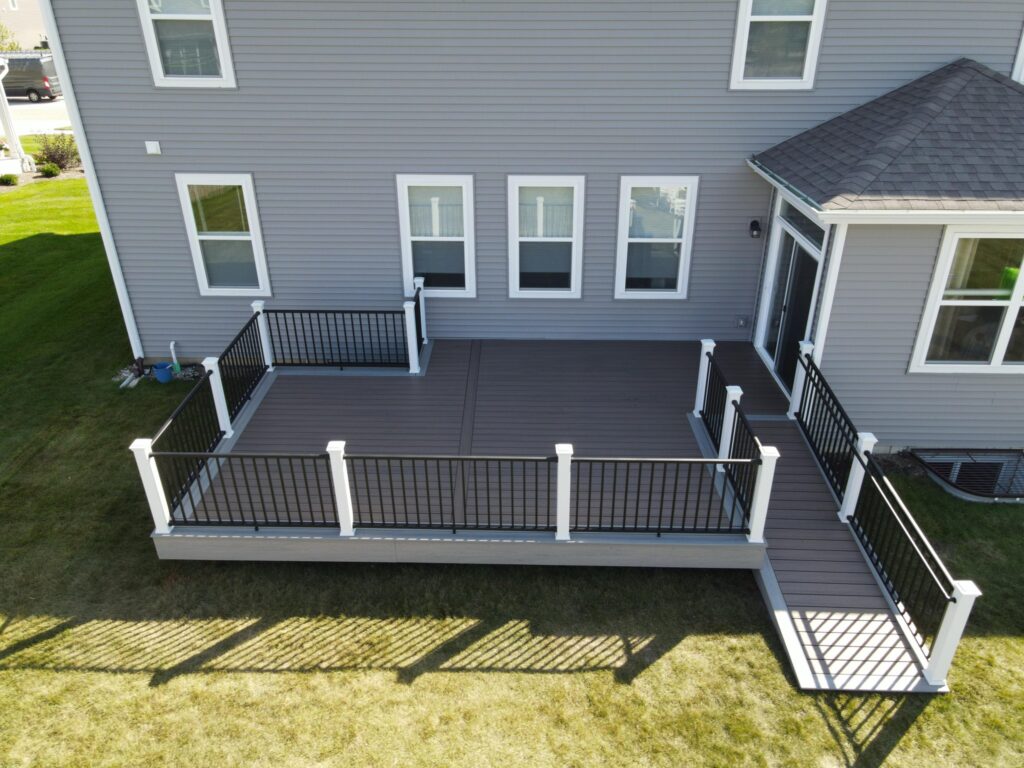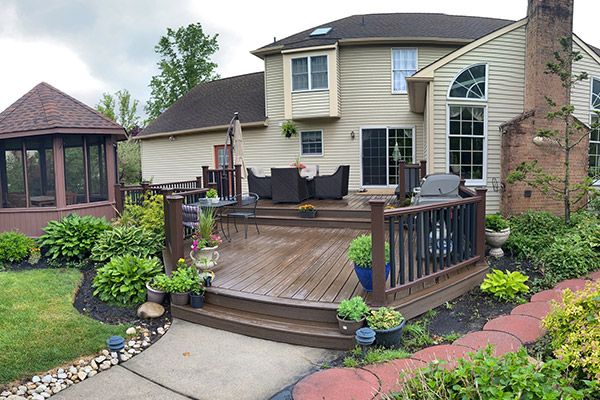Avoid mistakes by hiring trusted Composite Deck Builders Near Me
Avoid mistakes by hiring trusted Composite Deck Builders Near Me
Blog Article
Discovering Various Types and Advantages of Deck: A Comprehensive Guide
The outdoor deck is more than simply an expansion of one's living space; it's a testament to personal style, a location for social events, and a sanctuary to relax. The selection of outdoor decking material considerably influences these elements, with choices ranging from the classic appeal of wood to the practicality of composite, and the sturdiness of light weight aluminum. Recognizing the nuances of these materials is important, so let's begin our exploration, one deck type each time.
Understanding the Basics of Decking Product
Decking product works as the foundation of any kind of deck job, determining the total visual appeals, sturdiness, and performance of the end product. The market supplies a large variety of products, each with one-of-a-kind characteristics matched to various style preferences and environmental problems. The selection consists of all-natural wood, composite, plastic, aluminium, and also concrete. Timber, being the traditional selection, gives a timeless, traditional charm. Composite, a blend of timber and plastic, supplies wood-like visual appeals with much less upkeep. Plastic and aluminium give modern, minimalistic options, while concrete is preferred for its unrivaled sturdiness. The choice of product considerably affects the deck's life expectancy, maintenance requirements, and resistance to aspects. As a result, comprehending the essentials of decking product is critical for an effective deck project.
Benefits and Drawbacks of Timber Decks
In reviewing deck types, recognizing the pros and cons of wood decks becomes critical. This entails considering elements such as the kind of timber chosen and its effect on the deck's efficiency. The subsequent discussion will certainly explore these factors in detail to provide an extensive sight of the drawbacks and advantages related to wood decks.

Timber Deck: Cons & pros
The beauty of wood decks can not be overstated. They show a timeless appeal and cozy aesthetic that many homeowners discover alluring. This natural product is functional, enabling a variety of design opportunities, and can give an exceptional return on investment.
Nevertheless, timber decks also come with specific downsides. Its durability can be much less than other decking materials, particularly if not effectively cared for.
Choosing Your Wood Kind

Exploring the Advantages of Composite Decking
Transforming focus to composite decking, it supplies special advantages. you can try these out Its sturdiness outmatches conventional timber in harsh weather condition problems, minimizing the requirement for constant maintenance. Furthermore, it supplies a pleasing aesthetic appeal with variable layout choices.
Compound Decking Durability Benefits
In spite of the myriad of decking choices available in the market, composite decking stands out for its sturdiness. This type of decking, made from a mix of wood and plastic, provides a resistant, resilient platform immune to aspects that normally deteriorate various other products. In summary, the toughness advantages of composite decking provide a sustainable, cost-efficient option for outside living areas.
Maintenance of Compound Decks
In addition to durability, composite decking boasts a major advantage in terms of maintenance. Unlike traditional timber decks, composite decks are not at risk to rot, warp, or insect damages, therefore substantially lowering the demand for routine repair work and replacements. The low-maintenance nature of composite decks not just gives simplicity of upkeep yet additionally contributes to their long-term cost-effectiveness.
Visual Charm and Variability

The Increasing Popularity of Light Weight Aluminum Decks: Why Select Them?
As the demand read this for durable and low-maintenance decking surges, light weight aluminum decks are increasingly coming to be the go-to alternative for lots of property owners and contractors. These decks, made from a light-weight yet strong metal, supply a number of advantages over standard wood or composite decks. To begin, aluminum is normally immune to the elements, suggesting it won't warp, crack, or fade with time. This makes it a cost-effective choice over time. Additionally, its non-porous surface area prevents the growth of mold and mildews, insects, or fungis, ensuring a clean and healthy and balanced outdoor area. Light weight aluminum decks are also eco-friendly, as they are typically made from recycled products and can be reused again at the end of their life expectancy. Their streamlined and modern aesthetic charm fits well right into modern home layouts.
Upkeep Tips for Different Decking Products
Regardless of the variety of decking materials readily available on the marketplace, each comes with its own collection of maintenance needs to make sure long life and aesthetic allure. All-natural timber decks call for routine sealing or staining to stop weather condition damage, while composite decks require regular cleaning with soap and water to remove spots and particles. On the other hand, aluminum decks call for much less upkeep, just needing periodic washing with water to maintain them tidy. Dealt with wood decks, although resistant to rot and bugs, additionally require regular sealing to maintain dampness out. Understanding these upkeep requires is essential for deck proprietors to optimize their investment and keep their decks looking their finest for years to come.
When Selecting Your Deck Kind, elements to Take Into Consideration.
Composite decks withstand moisture well, making them ideal for moist or rainy areas. While some might prefer an elegant, unique wood deck, spending plan constraints may necessitate a much more affordable choice like pressure-treated timber. Hence, climate, way of living, cost, and maintenance are essential factors to consider in deck option.
Conclusion
Wood decks enchant with all-natural appeal, while composite and light weight aluminum ranges use longevity and reduced upkeep. Before committing to a certain deck kind, house owners ought to thoroughly consider the benefits, downsides, and upkeep requirements of reference each material.
In reviewing deck types, understanding the pros and cons of timber decks ends up being important.Despite the plethora of outdoor decking alternatives offered in the market, composite decking stands out for its durability. Unlike traditional wood decks, composite decks are not vulnerable to rot, warp, or insect damages, thus substantially decreasing the demand for normal repair work and substitutes. These decks, made from a lightweight yet sturdy steel, offer a number of advantages over standard wood or composite decks. Natural timber decks require normal discoloring or securing to avoid weather damages, while composite decks require regular cleaning with soap and water to get rid of spots and debris.
Report this page